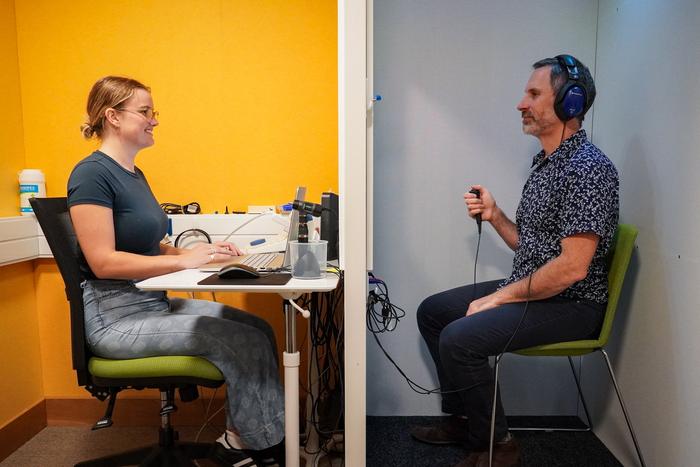How will you age? World-leading Dunedin Study launches next phase
The world-leading Dunedin Study is set to launch its age 52 assessments, delving into an understudied but important period of life and time of change. Credit: University of Otago The world-leading Dunedin Study is set to launch its age 52 assessments, delving into an understudied but important period of life and time of change. The […]

The world-leading Dunedin Study is set to launch its age 52 assessments, delving into an understudied but important period of life and time of change.

Credit: University of Otago
The world-leading Dunedin Study is set to launch its age 52 assessments, delving into an understudied but important period of life and time of change.
The Dunedin Multidisciplinary Health and Development Study is a longitudinal study that follows the lives of 1037 babies born in Queen Mary Maternity Hospital between 1 April 1972 and 31 March 1973. It is the most detailed study of human health and development in the world.
Members have been assessed regularly throughout their lives, most recently at age 45.
Study Director, Research Professor Moana Theodore is incredibly excited to start the age 52 assessments on 8 April.
“Midlife is an understudied period of time when it comes to understanding health and wellbeing,” Professor Theodore says.
Research often focuses on childhood or old age, leaving a gap in information about people in the middle part of their lives and how their health is shaped by their early lives and will affect how they age.
“Not only is it a time of change – people’s children may be leaving home and their parents are getting older – but it’s also when significant health issues can arise,” she says.
“Chronic conditions emerge at earlier ages for some of our communities who have less access to services and experience inequities in health. The best way to study inequities is to identify lifecourse pathways that create them to inform programmes that address inequities now and for future generations.”
By adding the new age-52 data to the information gathered from Study members in their 30s and 40s, researchers will be in a rare position to understand how people age.
“Why that’s so important is because we have an ageing population. Some of our most pressing healthcare, social, and economic issues relate to how we best support and care for people as they age.”
The assessments will take about two years to complete. Study members will undergo a range of physical tests including a dental examination, vision, hearing and respiratory tests, and will answer many questions about their lives. They will also attend a brain MRI scan on a second day.
Professor Theodore says researchers ensure as many members can participate as possible, bringing them to Dunedin from all over the world. Incredibly, 94 per cent of all living members took part in the age 45 assessments, making it the highest follow-up rate for a study of this design and duration in the world.
This is what sets it apart from other longitudinal studies, she says.
“The Study members come from all walks of life. Our high retention rate gives us the ability to look at the wide range of human experiences.
“The fact that we have this world-leading study right here in Aotearoa New Zealand is something that we should all be incredibly proud of. But it is only possible due to the generosity of each and every one of our Study members and their families.
“The Study members are the true heroes of this Study. They have given half a century of service to their country. In recognition of their contribution, they each anonymously received a Civic Award from the City of Dunedin in 2010, and a copy of the Study’s 2016 Prime Minister’s Science Prize certificate. The Study itself was also awarded the Rutherford Medal in 2022, the most prestigious national research award.”
The last time the Study members were seen was before the COVID-19 pandemic and the Study is in a unique position to examine how people’s lives have changed since then. The Study is also increasing its focus on how the environment impacts of health. New technologies will look at Study members’ exposure to chemical toxins like pesticides, air pollution, and heavy metals.
Those are just some of the things that have changed since the last assessments. Professor Theodore was named Director in October 2023, after the untimely passing of former Director Emeritus Distinguished Professor Richie Poulton.
Professor Theodore is only the third Director in 51 years, and the first Director who is Generation X, the same age as the Study members.
“Like many New Zealand students and researchers, I have been fortunate to learn and train at the Study. Richie was a long-time mentor of mine. He knew that the data that we collect would become more and more valuable and helpful over time – that the best years of the Study were still to come.
“I work alongside a team of staff who will ensure we build upon the Study’s legacy. A team that is absolutely committed to the Study and the Study members and working alongside internationally renowned researchers across such a broad range of multidisciplinary areas.”
One of those leading researchers is the Study’s Associate Director Professor Terrie Moffitt. Professor Moffitt, who is based at Duke University in North Carolina, says the Study has had a significant impact internationally.
“The Study has from the outset aimed first to improve health in New Zealand,” she says. “But it is also well-regarded as a trusted source of health information overseas.”
Professor Moffitt says the measures used in the Study are the same quality used in clinics and its findings are published in top international medical journals.
“Most studies just stay on the surface, they send out postal questionnaires, or collect saliva through the post, or collect data over the internet. But each and every Dunedin Study member spends a whole day in person, at the Unit, being assessed in depth.”
Subject of Research
People
What's Your Reaction?

































